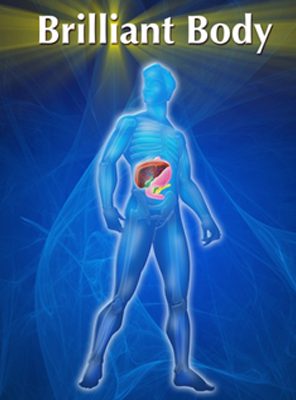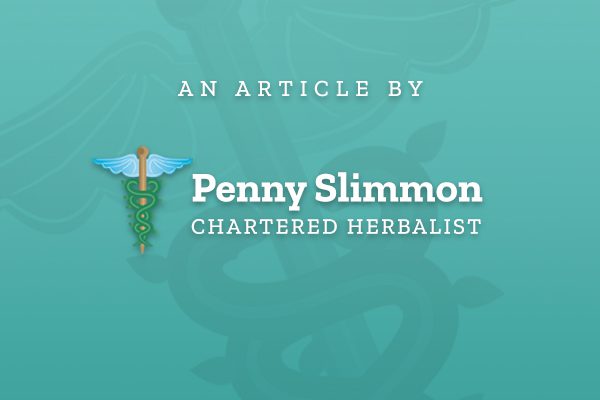Tucked up under your right rib cage is the largest organ in the human body, the liver. Weighing in at about three pounds, this organ is one of the most versatile and complex biochemical processing plants in existence. The metabolic mastermind of the human body, the liver plays vital roles in digestion, metabolism and the elimination of toxins from the body.
The Many Functions of the Liver
All traditional systems of herbal medicine place great importance on the liver in maintaining good health. In Cherokee medicine, this triangular-shaped organ is considered the seat of healing. In Chinese medicine, it it’s the home of the wood element, the element of life. The Chinese also consider the liver to be the “ruler” of the blood and the organ that harmonizes the function of all other organs.
In traditional Wester medicine, the liver is the home of the “second digestion”. This concept finds validity in modern medicine as all of the blood from the digestive tract is shunted through the hepatic vein to the liver before being allowed into general circulation. This allows the liver to store or process nutrients and to remove toxins or microbes coming from the digestive tract so they don’t damage the rest of the body.
Here are just a few of the liver’s many other functions:
- It produces bile to aid in the digestion of fats. Bile also serves as a channel for the elimination of excess cholesterol and some environmental toxins.
- Acting as a kind of warehouse for the blood, the liver stores nutrients so they can be released into the bloodstream as they are needed by the cells. The liver also processes many nutrients so they can be properly transported and utilized where they are needed.
- The liver is the body’s primary detoxification center. Although every cell has some ability to detoxify, the liver has numerous enzyme systems for breaking down metabolic waste and environmental toxins so they can be eliminated through the urine or feces.
- The liver makes lipoproteins (also known as cholesterol to transport fats through the body. Low-density lipoproteins (LDL) transport fats to the cells while high-density lipoproteins (HDL) transport fats back to the liver for elimination. Liver health is therefore critical to the proper metabolism of fats and cholesterol in the body.
- As a storage center, the liver plays a very critical role, along with the pancreas and adrenals, in maintaining normal blood sugar levels. The liver stores excess sugar when blood sugar is high and releases it again when blood sugar levels drop. Thus, both hypoglycemia (low blood sugar) and diabetes (high blood sugar) can be related to problems with the liver.
- The liver plays an important role in the immune system. When bacteria or infectious organisms are absorbed from the intestinal tract, the liver acts as a back-up line of immune defense, destroying them before they can get into the rest of the body.
Potential Health Problems and the Liver
Because the liver has so many important function, it’s easy to see how even moderate liver dysfunction could contribute to a whole host of health problems. Unfortunately, moderate liver dysfunction is not something that is on the “radar” of modern medicine which tends to only recognize serious liver disorders like hepatitis and cirrhosis of the liver. The following list explains some of the physical problems that may be tied to liver dysfunction.
- Constipation – bile from the liver is a natural laxative, helping to promote normal elimination.
- Diabetes (Type 2 or adult onset) – the liver works with the pancreas and adrenals to regulate blood sugar.
- Flushing of the face and hot flashes – In Chinese medicine there is a condition called “liver fire rising” in which an over-heated and irritated liver will cause redness and flushing of the face with sensations of heat. Soothing the liver relieves this condition.
- Food allergies – many allergic reactions to food come from either a lack of digestive enzymes or a toxic and overburdened liver that can’t properly process certain nutrients.
- Groggy, sluggish feelings – When the liver is overburdened we wake up feeling groggy and sluggish and may feel like we are just not completely well during the day. Mentally, we will experience “brain fog”, the sense that we just can’t think clearly. This is a sign that our system is toxic, and the detoxification systems of the liver are unable to keep up.
- Hay fever and allergy-induced asthma – the liver breaks down excess histamine in the system through its enzymatic detoxification pathways. If some of these pathways are sluggish, histamine reactions occur more readily and we will experience respiratory problems as a result.
- Headaches, especially migraines – people who experience frequent headaches may have sluggish liver detoxification or may be dehydrated and unable to flush toxins the liver has processed. Migraines, in particular, seem to have a strong connection to the liver as improving liver function often seems to reduce the severity and frequency of migraines.
- High cholesterol levels – most of the cholesterol in your body doesn’t come from your diet; it is manufactured by your liver. Cholesterol is used to bind environmental toxins, which is why it is usually higher in people living in Western civilization and why low levels of cholesterol increases you risk of cancer. The liver removes excess cholesterol from the body via the bile, so sluggish bile function, dehydration and a lack of fiber in the diet will cause cholesterol levels to elevate.
- Hormonal imbalances – the liver breaks down excess hormones, so problems with liver enzyme systems can cause hormone imbalances.
- Hyperactivity – irritation in the liver makes a person feel “on edge” and contributes to hyperactivity in children.
- Hypochondriac feelings – the vague nature of liver symptoms and the inability of some health care providers to identify the liver as the cause makes people with liver dysfunction feel like they are hypochondriacs.
- Hypoglycemia – the liver stores sugar for release when the blood is low in sugar. Inadequate stores of glycogen in the liver, contributes to low blood sugar.
- Insomnia – people with moderate liver dysfunction tend to feel restless in the evening and are unable to fall asleep easily because the liver energy is most active around midnight (according to traditional Chinese Medicine -TCM philosophy). In the morning, however, they wake up feeling tired and sluggish.
- Intestinal gas, bloating and distress – while these symptoms are primarily digestive, they can also signal moderate liver dysfunction.
- Nausea, vomiting and diarrhea – Toxins that the liver has dumped into the intestines can irritate the intestinal tract, causing the digestive tract to try to flush these irritants through vomiting or diarrhea. In some systems of traditional medicine, the 24 hour flu was called a liver crisis.
- PMS symptoms – Many symptoms of PMS (anger, irritability, depression, mood swings, etc.) are due to hormonal imbalances caused by congestion in the liver. When it is unable to break down excess hormones properly, the liver contributes to problems at “that time of the month.”
- Prostate problems – sluggish liver detoxification and congestion of the venous circulation in the liver is a contributing factor to prostate swelling and enlargement.
- Severe body odor – this is a sign the body is toxic, which points to the need to cleanse the liver and digestive tract.
- Skin disorders (acne, eczema, psoriasis, rashes, etc.) – in traditional Western medicine, these conditions were thought to be the result of “impure blood” and treated with “blood purifiers.” These purifying herbs are typically bitters that improve liver and lymphatic function. Remember that part of the liver’s job is to prevent toxins from the digestive tract entering the general circulation and to remove them from the blood. When it is unable to do this, the job of removing these toxins falls on other eliminative systems like the skin.
- Varicose veins – generally, when one has varicose veins, one also has sluggish venous circulation in the liver.
How Can you Help Your Liver?
Take this little quiz to see if you need nutritional support for your liver. Answer each question and the score will add for you at the bottom.
Scoring
60 or higher: You definitely need to nutritionally support your liver. You should also reduce your exposure to chemicals (food additives, pesticides, etc.).
30-60: Supporting your liver may help to improve your overall health.
30 or lower: Supporting your liver is not a high priority for your health program.
The liver and Emotional Imbalance
Obviously, many physical health problems are associated with liver problems, but even more telling are the emotional imbalances that can be connected with the liver. These include:
- Anger, irritability and defensiveness – In traditional Chinese medicine (TCM) and traditional Western medicine, the liver is seen as the seat of anger. Anger is the emotion that allows us to stand up for and protect ourselves. The liver is the primary organ that protects the internal systems against environmental toxins and appears to have a strong link with feelings of anger. Relieving congestion and irritation in the liver can help people feel calmer, and less prone to be easily irritated. Hence, feeling easily angered is a major symptom that your liver may need help.
- Depression and discouragement – these emotions are the opposite of anger because they are feelings of being defeated and overwhelmed. These feelings are often connected with sluggish and weakened liver function, where the liver is inefficient in its removal of toxins from the body. This causes a person to feel overwhelmed and sluggish.
Just because you have one of the problems listed doesn’t mean that liver dysfunction is the only or even the primary cause. It just may be a factor. If you have a lot of health problems associated with the liver, then you should make nutritionally supporting your liver a primary part of your health-building program.
Protecting the liver from Toxins
When chemicals get into the body, the body attaches them to cholesterol and transports them to the liver, which uses enzymes to make them water-soluble. Many toxins are then eliminated through the bile. One of the problems with environmental toxins is that they are often not water-soluble. This includes heavy metals like mercury and petrochemicals like formaldehyde, cleaning solvents and gasoline. Many household cleaning products, cosmetics, dry cleaning solvents, and agricultural chemicals also fall into this category.
Think about the mercury fillings in your teeth, the hair dyes, paints, cosmetics and other fat soluble chemicals that you may be exposed to on a daily basis. If the eliminative channels can’t get rid of it, then it’s going to get stored-in fat. If you break down the fat, then the chemicals are going to be released into the bloodstream, causing a variety of problems if the liver and eliminative organs aren’t strong enough to handle them.
Toxins and Milk Thistle
Keeping our liver in good working condition can be a challenge in this modern world. Not only are we exposed to a lot of chemicals, the liver needs extra nutrient to break them down-nutrients that may be lacking in modern diets. Fortunately, herbs can do a lot to help prevent damage to the liver from these environmental toxins.
Milk thistle, in particular, has been well researched in this regard. Studies have shown that milk thistle has a protective effect on liver tissue, even in cases of chemical poisoning. It keeps toxins absorbed by the intestines from damaging the liver while it works to neutralize them.
Anyone who works around fat-soluble chemicals of any kind (painters, hairstylists, dry cleaners, au0t mechanics, plastics factories etc.) ought to include milk thistle in his or her daily supplement regimen. This is a great way to help protect their liver.
Blood Purifiers and Skin Conditions
There is a strong connection between the liver and the skin. The oil ducts in the skin can be used to eliminate fat-soluble toxins. Skin problems such as acne, pimples, pox, dry skin, eczema, dermatitis, and itching may indicate the liver is overburdened with toxic fat and can’t handle the load. So, the skin is now acting as a safety valve, an overflow for the excess toxicity. Traditional herbalists saw these problems as signs of impure blood and used remedies called blood purifiers to promote healing. Most herbs classified as blood purifiers work on the liver, with secondary benefits to the lymphatics and /or urinary system.
As we’ve discussed, toxins from the intestinal tract are absorbed into the bloodstream and transported to the liver. The liver tries to neutralize these toxic substances or flush them back into the intestinal tract via the gallbladder. However, if the liver can’t handle to toxic load, then the toxins get into the general circulation. So, the blood becomes “impure”.
At this point, the endocrine system kicks into gear to stimulate elimination of these toxins through other channels. Depending on the relative strength of various glands and the type of toxin involved, the body may choose to push these toxins out of the body through the skin, the kidneys, and the mucous membranes of the respiratory tract, or in the case of women, through the menses. The skin and kidneys are the body’s preferred channels for eliminating toxins from the blood. Thus, skin eruptive diseases and urinary problems are signs that the blood needs cleansing and herbs that help clear up these toxins by strengthening the ability of the liver and kidneys to remove them are appropriately called blood purifiers.
Common blood purifiers are: alfalfa, dandelion, burdock, yellow dock, yucca, blessed thistle, red clover, milk thistle, pau d’arco, yarrow and golden seal. Herbal companies will offer these on their own or in combination with each other where they work synergistically to achieve the best results.
Irritability and Depression
Traditional Chinese medicine associates the element of “wood” with the liver and gallbladder. The element of wood represents our ability to grow, expand and live. When this ability to flow in our lives is disrupted, we feel irritable and angry. To understand this, just imagine that you are driving down the freeway and are running a little late. You are anxious to get to your destination when suddenly you run into a huge traffic jam that grinds traffic to a halt. If you’re normal, this block in you “flow” probably makes you feel frustrated at the least, and angry at the worst. This inhibition of flow is something similar to the concept of “constricted liver chi (energy).”
When the liver is congested and toxic, we tend to feel defensive and irritable. In Chinese medicine, certain herbs work together to “mediate harmony,” (in Chinese-Tiao He) meaning they help to establish flow and harmony in the internal function of the body. They help to detoxify the liver (and the body) and relieve this constricted energy of the liver. This helps a person feel calmer and less irritable.



